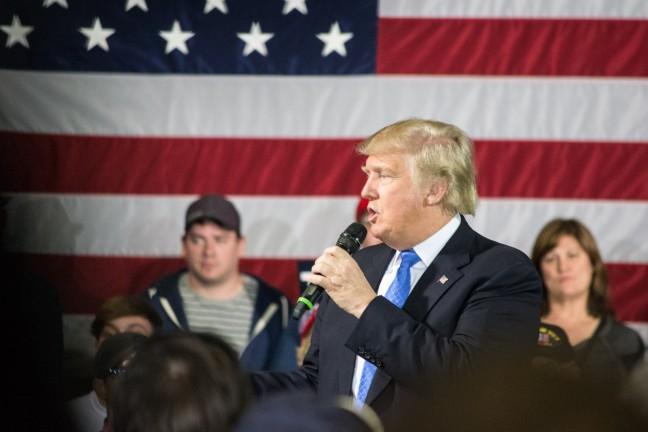There is more than a presidential election coming up this year. All 435 seats in the House of Representatives and 34 of the Senate’s 100 seats are up for grabs. Many of these congressional elections are occurring in battleground states where the presidential election is expected to be tight.
One of the most interesting parts of this election is comparing the presidential race in swing states to the Senate races. When observing the poll averages, many swing-state Republican senators are polling ahead of their Democratic opponents where Clinton is ahead of Trump.
Let’s take Ohio, for example. The Buckeye State has 18 electoral votes and is known for the critical importance it plays in the presidential election, but the Senate race is nowhere near as imperative. In 2010, the year of the Tea Party, former Director of the Office of Management and Budget Rob Portman handed the GOP one of its many gains during that midterm year. Portman is now running for his second term and is facing former Governor Ted Strickland.
Far from ignorant, millennials have shaped discourse in this election
One would think that a former governor would be a perfect candidate to challenge Portman. Instead, Portman is leading Strickland by an impressive double-digit margin of 13.1 percent, according to the polling average as of Oct. 2. The Democratic Senatorial Campaign Committee is worried that they won’t win this election, so they are pulling out resources. Yet, the polling average for the presidential election is a different story. Trump narrowly leads Clinton by a margin of 1.8 percent.
Let’s go northeast to New Hampshire. Despite having only four electoral votes, it is known for being another battleground state that could tip the election in favor of either Clinton or Trump. Right now, Clinton has a comfortable lead of 6 percent in the Granite State. The Senatorial election, however, tells a different story. Kelly Ayotte, the Republican incumbent, won her first election in 2010, like Portman. She is running for a second term against Governor Maggie Hassan, the Democratic challenger. Ayotte is slightly ahead of Hassan, with a margin of 1.6 percent according to the polling average.
Let’s go down south to Florida, America’s largest battleground state with 29 electoral votes. After dropping out of the presidential sweepstakes, Marco Rubio decided to run for the Senate after being urged to do so by many state Republicans. He won his primary easily and is taking on Democratic Representative Patrick Murphy. As of now, Rubio is ahead by a decent margin of 5.5 percent, according to the average. What of the presidential race? Clinton is ahead in Florida, but only by 1.2 percent.
Oddly enough, Wisconsin is an exception to this rule. In our home state, Democratic challenger Russ Feingold is currently ahead of incumbent Republican Ron Johnson by a substantial margin of 9.7 percent on average. Clinton is ahead of Trump here too but by a closer margin of 4.7 percent. Part of it might be due to the way the two candidates have campaigned compared with the presidential candidates. On the other hand, Wisconsinites probably view the two presidential nominees differently than the two running for Senate. This is likely the case for many voters across the country.
Why are Republican senators stronger in their elections than Trump is in most competitive states? There are two contributing factors.
First, the senators have had more discipline and campaign experience than their presidential nominee. Trump is new to political campaigning, so he lacks that kind of knowledge.
Second, Trump has made a number of controversial statements during the election that have alienated many voters who Trump will need to win over if he wants his seat in the Oval Office.
The outcome of the presidential and congressional races will end up saying a lot about what Americans are looking for. If Republicans maintain control of Congress and Clinton wins the presidency, then it’s possible the American people would have preferred a Republican presidential candidate other than Trump. If Clinton wins and Republicans hold Congress, she will have to understand that the need to compromise will supersede her desire to enact a liberal agenda.








